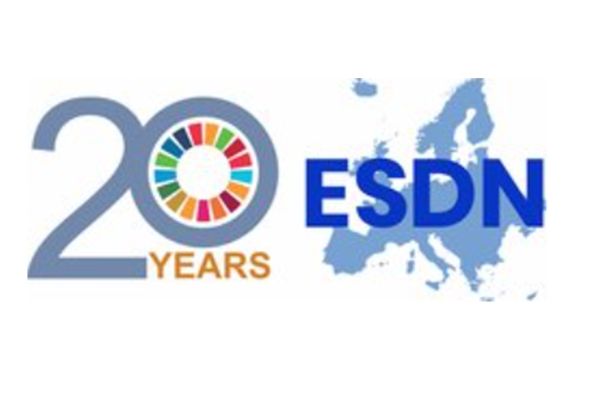European Sustainable Development Network (ESDN)

The European Sustainable Development Network (ESDN) facilitates the exchange of information between representatives in public administration as well as experts and provides comprehensive analyses on relevant sustainability topics.
The roots of the European Sustainable Development Network (ESDN) date back to 2002, when the national sustainability coordinators of several European countries met in the Netherlands for an initial exchange of experiences. These meetings were repeated annually in the following years, and the number of participants steadily increased.
In 2006, the structure and organization of the ESDN were therefore institutionalized. Since then, a Steering Group has been in place, composed of representatives from seven European countries under the leadership of Austria (the other countries represented in the Steering Group are Belgium, Germany, Finland, France, Italy, and Switzerland), along with an ESDN Office, which coordinates the network’s activities. The European Commission, represented by the Directorate-General for Environment, has observer status in the ESDN Steering Group.
In addition to public administration officials, representatives of the European Commission, various national sustainable development councils, members of European and international organizations (e.g., EESC, OECD, UN), academics, and representatives of non-governmental organizations (NGOs) are also involved in the network.
Currently, the ESDN has 189 members from 35 European countries and associated partners from Israel, Canada, New Zealand, Tonga, the United States, and the United Arab Emirates.
Strategic Goals of the Network
The ESDN pursues four strategic goals:
-
The further development and improvement of sustainable development in Europe and the EU Member States;
-
The promotion of the exchange of experiences and "good practices" on sustainable development across Europe;
-
Supporting public administration officials throughout Europe in their work on sustainable development by preparing information and deepening knowledge on various topics through analysis;
-
The consideration of sustainability aspects and topics at different political levels, in policymaking, and the integration of the EU Sustainable Development Strategy (EU-SDS) into the governance mechanisms of the EU and its Member States.
Activities of the Network
The strategic goals of the ESDN are implemented through various activities:
-
The ESDN website is a “one-stop shop” for all information on sustainable development in Europe. In addition to detailed information on sustainability strategies, it offers country profiles that provide current and comprehensive information on national sustainability processes.
-
The largest ESDN events are the annual ESDN Conferences. These aim to discuss current topics related to sustainable development with participants from across Europe, to highlight different approaches, and to develop ideas and proposals for solutions. In addition, ESDN Workshops are held once or twice a year. The results of all events are further processed within the ESDN and are disseminated in the form of policy briefs to representatives of the European Commission, the European Parliament, and other stakeholder groups.
-
The ESDN’s substantive work in terms of overview and analysis of current sustainability topics is carried out through Quarterly Reports, which are prepared by the ESDN Office. Furthermore, the ESDN's activities support the implementation of the 2030 Agenda for Sustainable Development.
In 2015, the ESDN initiated the European Sustainable Development Week (ESDW). The goal of this Europe-wide initiative is to launch activities, projects, and events that contribute to sustainable development and the implementation of the Sustainable Development Goals (SDGs).
The 2025 ESDW will take place from 18 September to 8 October.